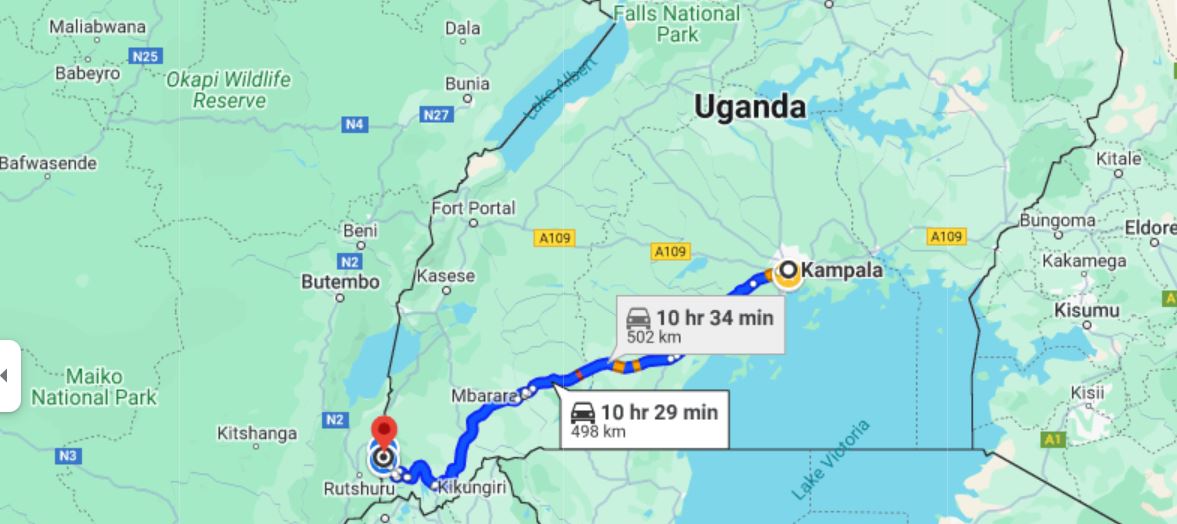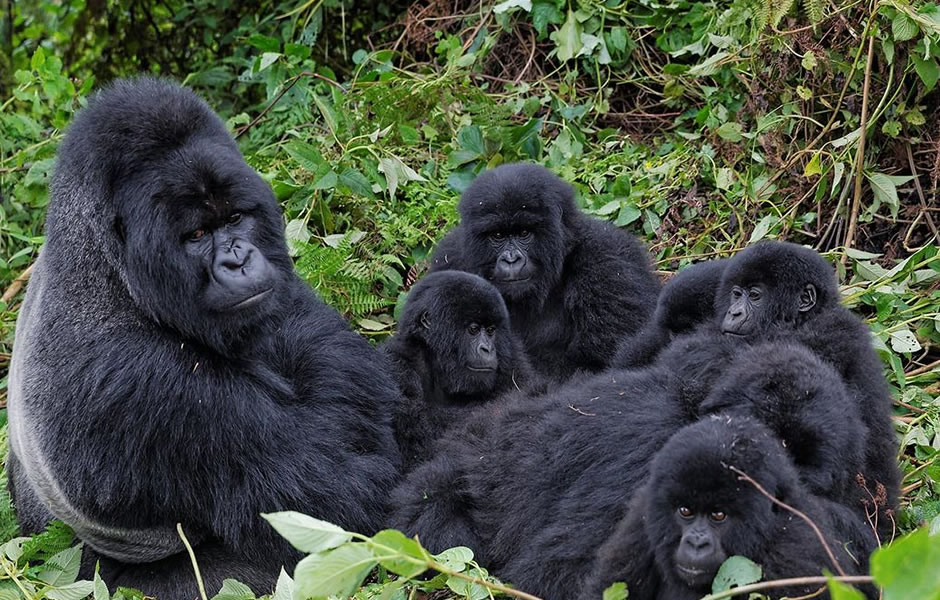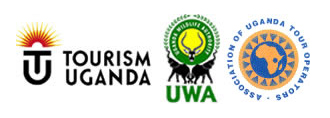
Coffee Plantations in Uganda
Coffee Plantations in Uganda.
Coffee Plantations in Uganda: Agriculture makes up 85% of Uganda’s income. The “pearl of Africa” grows food and cash crops, both for local use and export. Coffee, which is grown in different parts of the country, is the main cash crop. Millions of bags of coffee are shipped every year, which brings in a lot of money for the people and the government. Uganda’s main product is coffee, which brings in a lot of money from other countries. There are only two types of coffee grown in Uganda: Arabica and Robusta. Robusta is grown four times more than Arabica, so the ratio is 4:1. These coffees are grown in four parts of Uganda where the weather and soil are good. Since there are rich soils and regular rain in the highlands, most Arabica coffee is grown on the slopes of the mountains Elgon, Rwenzori, and Muhavura, which are about 1500 metres above sea level. Robusta is grown in all of Uganda’s regions, starting with the Lake Victoria circle. Robusta is grown at 1200 metres above sea level in the eastern, central, western, and central parts of the country, while Arabica is mostly grown at 1500 metres above sea level in the eastern part. These regions have favorable conditions that boost and supply the coffees to be of good quality as usual making Uganda’s coffee of competitive advantage in the international market due to its outstanding aroma. Many small farms grow coffee as a way to make more money and provide for themselves and their families.
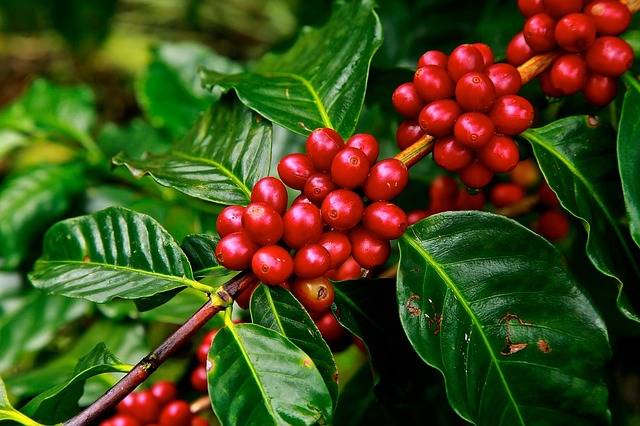
Coffee Plantations in Uganda.
Coffee in Uganda is cultivated among other crops in some homesteads like intercropping it with bananas, beans in large plantations. Uganda has a lot of coffee plantations, with Kaweri being the biggest and the first to use a coffee washing machine in the country in 2001. It is located in the beautiful central region of Kampala. It makes good Robusta coffee that is shipped to Europe and used to make cappuccino there. The rainforest around the farm and its location near the equator, where there are two wet and two dry seasons, are great for the coffee. If its workers didn’t work hard, Kaweri farm wouldn’t be able to do what it does. This plantation additionally gets involved in community welfare as an act of giving back to the community in terms of clean water sustainable programs, employment including daily jobs of picking, pruning of the coffee plants.
The “woman women’s cooperative” farm is in western Uganda‘s Queen Elizabeth National Game Park. It grows both Arabica and Robusta coffee, which is taken care of by the women who work there. These women were motivated to put food on their families’ tables and make their lives better. The plantation is nice, and coffee fans enjoy taking a tour of it even more. The women make and package the coffee on their own. There are more than 1,500 Arabica and Robusta coffee trees there. This coffee is made without using any chemical fertilizers or pesticides. It is made in a natural way.
There are many plantations in Mbale district in the Eastern region, primarily intercropped with other crops like Bananas, beans to sustain them since coffee is a perennial crop. Situated mainly on the slopes of mountain Elgon, a number of them are found in the Kapchorwa district, these growers apply fertilizers to the coffee plants, when coffee is cherry, it’s picked up, grind, washed and dried then roasted or sold immediately after drying depending on the market requirements. People who go to Sipi falls in Kapchorwa on a Uganda safari to see the beautiful view of the falls can see these coffee farms. The coffee’s pleasant scent brings in a lot of travelers, who like to help grind and taste the coffee.
Coffee Tours in Mbale Region – Sipi and Mt Elgon.
Mountain Elgon is a dormant volcano in east Africa. The boundary between Kenya and Uganda cuts it in half. This mountain was made by volcanic activity, and Mt. Elgon Uganda is in the rain shadow. This makes the slopes of the mountain perfect for growing because the soil is rich and it rains a lot.
Volcanic sands are known to be very rich on the slopes of this mountain. These are the best grounds for growing coffee, specifically Arabica coffee. The locals have used the rich soil to their advantage and have been growing this type of coffee for many years. This is one of their most important ways to make money. Since then, the safari activity has brought in hikers who want to learn more about how coffee is grown, picked, and handled in the area.
Coffee tours in Elgon- Mbale will take you to the base of Mount Elgon, where you will visit households and learn about every step that coffee goes through, from harvesting to packaging. Don’t forget that you have to plant, gather, process, store, and buy coffee. Farmers in the area who have done these things before will be able to tell you more about them.
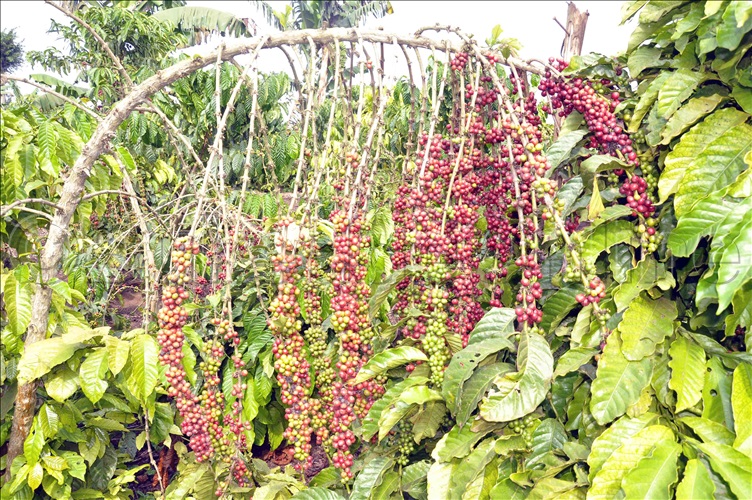
As a tourist on this coffee tour, you will have to drive about 280 kilometres from Uganda’s capital city, Kampala, to the Kapchorwa coffee growing area. This will take about 5 hours. When you get there, you’ll be warmly met by a local guide who is from the area and also a coffee farmer. He or she will tell you about rewarding and unique stories about how coffee is handled.
As was already said, Arabic coffee is usually grown here. It grows well in the rich volcanic soil and at high altitudes of 1,600m to 1,900m. The Kapachorwa has all of these things, which has helped Arabic coffee grow on the slopes of Mt. Elgon.
The most rewarding aspect of coffee tours in Uganda is visiting coffee farmers on a household level. As a visitor, you will help the farmer pick red coffee beans that are ready from the yard, let them dry in the sun, and pound them to remove the husk, which is the outer layer. After that, the coffee is roasted over a controlled fire, and then the roasted coffee is pounded to make a powder that can be mixed with hot water to make an Arabic coffee drink.
Coffee, in addition to providing income to farmers and job opportunities, helps the economies of other regions through the value chain. People who move things to workplaces and markets, weigh and process things, and load things all benefit from coffee. Coffee is now used in a number of industrial processes, and it is also sold outside of Uganda to increase the country’s GDP.
As Coffee Tours in Uganda travelers, you have the option to accompany your gorilla trekking safari adventure in Bwindi National Park with a coffee tour at a local farm in the regions of Kisoro district. With the Bwindi Impenetrable National Park Village Tours, you can learn about how Robusta coffee is grown in Uganda. Spend the whole day with small-scale farmers near Bwindi Impenetrable National Park.
Coffee tours in Queen Elizabeth National park.
Because coffee farms are all around Queen Elizabeth National Park, coffee tours are a popular thing for tourists to do there. On a Uganda safari to this park, one of the most amazing things you can do is go on a coffee tour. Most people don’t notice the coffee farms when they go to Queen Elizabeth National Park. A coffee plantation is an area of vast agriculture located between the game park and the farmlands of Queen Elizabeth National Park. Technically, it is in the border zone between the park and the farmlands. When visiting Queen Elizabeth National Park in the west, visitors can take coffee tours. During these interesting tours, you’ll learn about the whole process of growing coffee seeds, from making the seeds to selling them.

The coffee plantation within Queen Elizabeth National Park is managed by the Omwani Women’s Cooperative. Omwani Women’s Cooperative is a group of mature women who dedicate their lives to raising the living standards of their families and communities by producing organic coffee beans. These women grow coffee on fertile grounds without using any bio-chemicals or fertilizers. This is possible because the land is good for this natural farming method. There are more than 1,500 Arabic coffee trees and Robusta coffee trees in the area.
So, if you’re going on trek in Queen Elizabeth National Park, it’s a good idea to stop by the homes of the Omwani women and try the coffee they grow there. Growing, picking, sorting, drying, cleaning, sorting a second time, roasting, and packing are all things that are done by hand in the coffee-making process.
Members of the Omwani Women’s Cooperative are skilled at making high-quality coffee, which is needed all over the world all year long. The weather has helped the area grow good coffee because it rains twice a year and is cool.
The coffee plantation was set up to support and teach skills to the women in the communities around Queen Elizabeth National Park. Most of these women aren’t educated and have had problems like family fights that have lowered their standard of living.


